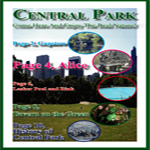Saturday, June 21, 2008
If you don't like Dreamweaver, you may want to try Rapidweaver
RapidWeaver can generate pages of different kinds, such as styled text, weblog, contact forms, image galleries, Flash slideshows, and podcasts; it also has a built-in FTP uploader, and integration with iPhoto and .Mac.
You may want to visit www.RealMacsoftware to see how amazing RapidWeaver is.
Students, are you ready to get trained at Space Camp?
 Did you visit, or even get trained at Space Camp? I have been watched videos, read newspapers, and played video games about Space. Unfortunately, I do not think I will have any chance to go to Space. What about getting trained at Space Camp? I think I can do it. How about you? If you are a teenager, or an adult, do you want to get trained at Space Camp? Do you want to experience the feeling of no gravity? Do you want to get spun around at high speed in a multi-axis trainer?
Did you visit, or even get trained at Space Camp? I have been watched videos, read newspapers, and played video games about Space. Unfortunately, I do not think I will have any chance to go to Space. What about getting trained at Space Camp? I think I can do it. How about you? If you are a teenager, or an adult, do you want to get trained at Space Camp? Do you want to experience the feeling of no gravity? Do you want to get spun around at high speed in a multi-axis trainer?For more information about getting trained at Space Camp, you may want to visit www.cnet.com/getting trained at Space Camp/.
Friday, June 20, 2008
Science vs Technology
 What is Technology?
What is Technology?It is the innovation, change, or modification of the natural environment in order to satisfy perceived human wants and needs. (Standards for Technological Literacy, ITEA, 2000)
The goal of technology is to make modifications in the world to meet human needs. (National Science Education Standards, NRC, 1996)
In the broadest sense, technology extends our abilities to change the world: to cut, shape, or put together materials; to move things from one place to another; to reach farther with our hands, voices, and senses. (Benchmarks for Science Literacy, AAAS, 1993)
Technology is the process by which humans modify nature to meet their needs and wants. (Technically Speaking: Why All Americans Need to Know More About Technology, NAE/NRC, 2002)
The goal of technology is to make modifications in the world to meet human needs. (National Science Education Standards, NRC, 1996)
In the broadest sense, technology extends our abilities to change the world: to cut, shape, or put together materials; to move things from one place to another; to reach farther with our hands, voices, and senses. (Benchmarks for Science Literacy, AAAS, 1993)
Technology is the process by which humans modify nature to meet their needs and wants. (Technically Speaking: Why All Americans Need to Know More About Technology, NAE/NRC, 2002)
Science vs. Technology
 Science:
Science:Deals with the natural world.
Is very concerned with what is (exists) in the natural world. (i.e.: Biology, Chemistry, Physics, Astronomy, Geology, etc.)
Is very concerned with what is (exists) in the natural world. (i.e.: Biology, Chemistry, Physics, Astronomy, Geology, etc.)
 while Technology:
while Technology:Deals with how humans modify, change, alter, or control the natural world. Is very concerned with what can or should be designed, made, or developed from natural world materials and substances to satisfy human needs and wants
 Science:
Science:Is concerned with processes that seek out the meaning of the natural world by “inquiry”, “discovering what is”, “exploring”, and using “the Scientific Method”.
 while Technology:
while Technology:Is concerned with such processes that we use to alter/change the natural world such as “Invention”, Innovation”, Practical Problem Solving, and Design.
While technology and science have a common denominator being the natural world, they are similar yet very different.
Technology Education (the study of technology) should NOT be confused with Information Technology or Educational (or instructional) Technology!
Technology Education (the study of technology) should NOT be confused with Information Technology or Educational (or instructional) Technology!
 What is “Technological Literacy?”
What is “Technological Literacy?”Technological literacy is the ability to use, manage, evaluate, and understand technology.
All information comes from "The Perspective of Technology Education", The Second International Symposium on Educational Cooperation for Industrial Technology Education, Kariya City, Japan.
All information comes from "The Perspective of Technology Education", The Second International Symposium on Educational Cooperation for Industrial Technology Education, Kariya City, Japan.
Sunday, June 15, 2008
Learning Beyond the Classroom
 After reading the article, "Learning Beyond the Classroom", I realize that the student's success is partially depended on their college extra-curricular.
After reading the article, "Learning Beyond the Classroom", I realize that the student's success is partially depended on their college extra-curricular.www.eduventures.com indicates the following keys:
- Academic clubs (34%), career clubs (29%), community service clubs (29%), honor societies (28%), and sports clubs (27%) are the five most common university-affiliated clubs and activities in which students participate.
- As a group, students who participate in three or more clubs have, on average, GPAs over 3.0, definitely plan to persist to their junior year, and definitely plan to graduate from their current institution.
- The largest gap in participation in clubs and organizations among student sub-groups is between on- and off-campus students, creating a retention risk for students living off campus.
- Programs in which students act as mentors, advisors, or counselors are the most important and highest impact form of leadership programming.
- Four types of community engagement have the most important impact on students’ sense of citizenship: volunteer or community service, fundraising for a charity or local community, mentoring or tutoring in the community, and community involvement programs.
http://www.eduventures.com
Subscribe to:
Comments (Atom)






